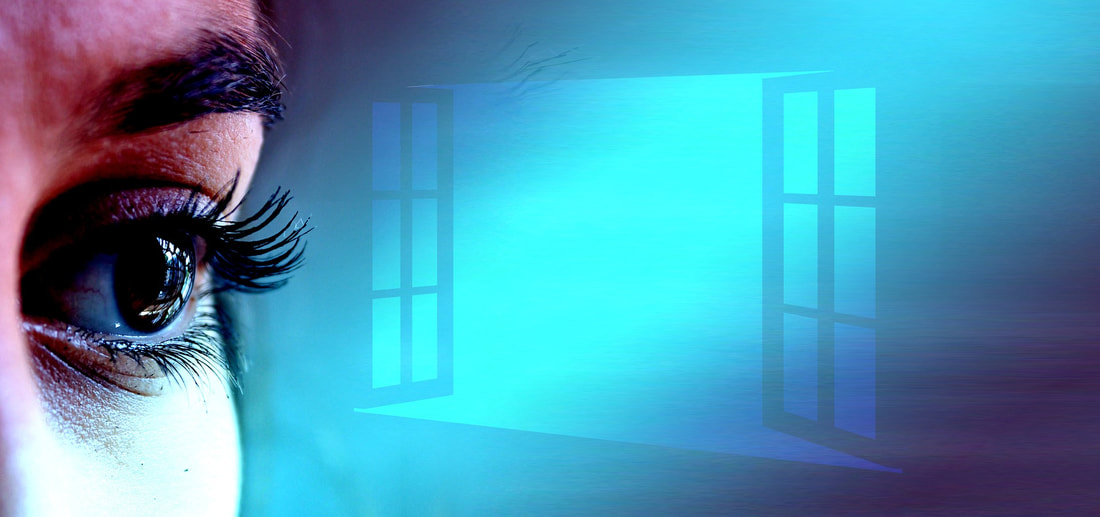What is Consciousness?
To discuss the great mystery of gaps in consciousness and their meaning, we should define what is consciousness in the first place. Most of the scientific authorities agree it is a state of awareness of one’s environment and an ability to respond to various external stimuli. In a broader sense, we can even include awareness of self, which implies the state of being self-conscious. From a spiritual point of view, consciousness is impersonal and inherently independent of mind, body, matter, energy, space and time. Related to that, consciousness can be unlimited, which is its true nature, or seemingly limited. Unlimited consciousness is actually the Primordial Oneness, infinite, omnipresent, eternal, without any boundaries of mind, space and time. On the other hand, limited consciousness is apparently constricted to the dynamic points of view. The word “dynamic” here indicates moving by the limitations of space and time. We, as conscious beings, or any other conscious entities, are examples of limited consciousness. Indeed, during our wakeful time, our consciousness is severely confined by space-time. So, by the gaps in consciousness, we mean discontinuities in the stream of limited consciousness, with no memories of these periods whatsoever. By the gaps in consciousness, we mean discontinuities in the stream of limited consciousness, with no memories of these periods whatsoever.
Continuity and Discontinuity of Consciousness
The discontinuous nature of our everyday consciousness is evident. Indeed, there are many gaps in our awareness. For example, we sleep regularly, and the state of deep sleep naturally interrupts our conscious presence. There are also other states of mind in which we are not aware at all – coma, vegetative state, anesthesia, etc. Note that in our awake time there are many smaller and unnoticeable discontinuities of our awareness during so-called visual saccades (quick movements of eyes between phases of fixation in the same direction) when our conscious responsiveness is turned off. Nevertheless, these small but frequent blackouts are very hard to notice, and there is always a pretty firm notion of the continuity in awareness. What happens with consciousness during all these discontinuities? Does it simply disappear, or something happens but we don’t retain any memory of that? Windows to Oneness Consciousness cannot be absent. It cannot disappear. It cannot be annihilated as it is present everywhere, in everything. It is impossible for us to become nothingness in the nihilistic sense if something conscious is already there. That’s why those continuity gaps are, in fact, windows to the higher levels of our existence or even to the Primordial Oneness. And those discontinuities are persistently repetitive. From the point of view of our limited minds, during the continuity gaps such as deep sleep, there is no consciousness, no time, so we merely jump on to the next period of being conscious. From a broader perspective, the gaps are only occurring from the vantage point of our limited consciousness, not within the unlimited consciousness. As said before, consciousness cannot ever be absent, anywhere. So, in these periods, our limited point of view shifts to its background consciousness, or “ancestral consciousness.” Our limited, individual consciousness becomes one with the much broader consciousness of our Soul, which is aware of many other lives or existences which we can consider as “ours,” and the continued conscious existence between these lives. To be more precise, during our continuity gaps, we experience all other lives or continual points of view of our higher-level ancestral being, or our Soul. But there is no memory of that when we awaken to the normal state of consciousness. During our continuity gaps, we experience all other lives or continual points of view of our higher-level ancestral being, or our Soul. But there is no memory of that when we awaken to the normal state of consciousness.
Beings at All Levels of Existence Also Experience Discontinuities
Our Higher Self, or Soul, despite its much broader vantage point, is also a limited entity. Therefore, it must have analogous gaps in their consciousness’ continuity. Similar to our everyday life, from the point of view of our Higher Self, there are no discontinuities in consciousness at all. Our Soul merely skips the time of the gap. But, from an even broader perspective, there are such periods of our Soul’s life. In those interruptions, the Infinite Consciousness experiences the conscious time of an even higher-level ancestral being (higher Soul). Still, there is no memory of these experiences. How many higher levels of our existence are there? It’s a mystery. However, the Primordial Oneness is the highest level of consciousness, and it experiences all at once, outside of space-time continuum and has the knowledge of everything and everyone. In those discontinuities of the stream of consciousness, our individual point of view, regardless its level, sometimes completely dissolves and our consciousness even merges with the Unlimited Consciousness, the Primordial Oneness. That consciousness experiences everything and anything instantly, in no time and no space. Therefore, it knows everything; it takes all possible points of view in all universes ever. This is the most natural state of Being. Hence, during the continuity gaps we are not staring the face of God – in fact, we are becoming God, or the Primordial Oneness. During some of those gaps, the Unlimited Consciousness, or Primordial Oneness, experiences all the lives of all conscious entities, including their past and future span, within the entirety of Existence. In all of those lives, similar continuity gaps are also happening myriads of times, which also allow experiences of all other existences, including this one. Yet, there is no memory of that when we awaken. During these discontinuities we are not staring the face of God – in fact, we are becoming God, or the Primordial Oneness.
The Memory as the Key to Individual Life
Our consciousness is constricted to this specific point of view of this concrete person. It depends on time and memory. Since there is no time during these gaps, there could be no memory of any experience within the gaps. The individual life continues as there are no memories of other points of view which were experienced. The only memory present in the normal state of consciousness is that of this particular individual existence. So, there is an absolute impression of our personal continuity. We, as God, or the Primordial Oneness, are experiencing all other points of view in all universes during the continuity gaps. Every one of us, as a particular being, seemingly experiences a continuous lifetime because of the lack of memory of neither of those lifetimes. That’s why the gaps in the apparent stream of our everyday consciousness are critical. From “time” to “time,” we return to our creator, become one with Him or Her, and deeply refresh and re-vitalize our illusionary existence. These discontinuities are not only inevitable; they are essential for our life and spiritual growth.
0 Comments
|
Please note that most of the articles have a "Read More" break, which is sometimes hardly visible.
It is located at the bottom of visible part of the article, on the right side. To continue reading the article, click on that link. This page may contain affiliate links meaning we earn a commission if you use those links.
We only recommend pages we appreciate and trust. Archives
March 2023
Categories
All

|
For guest posts or placing ads on our website, please use the contact form on the 'About/Contact Us' page.




 RSS Feed
RSS Feed

